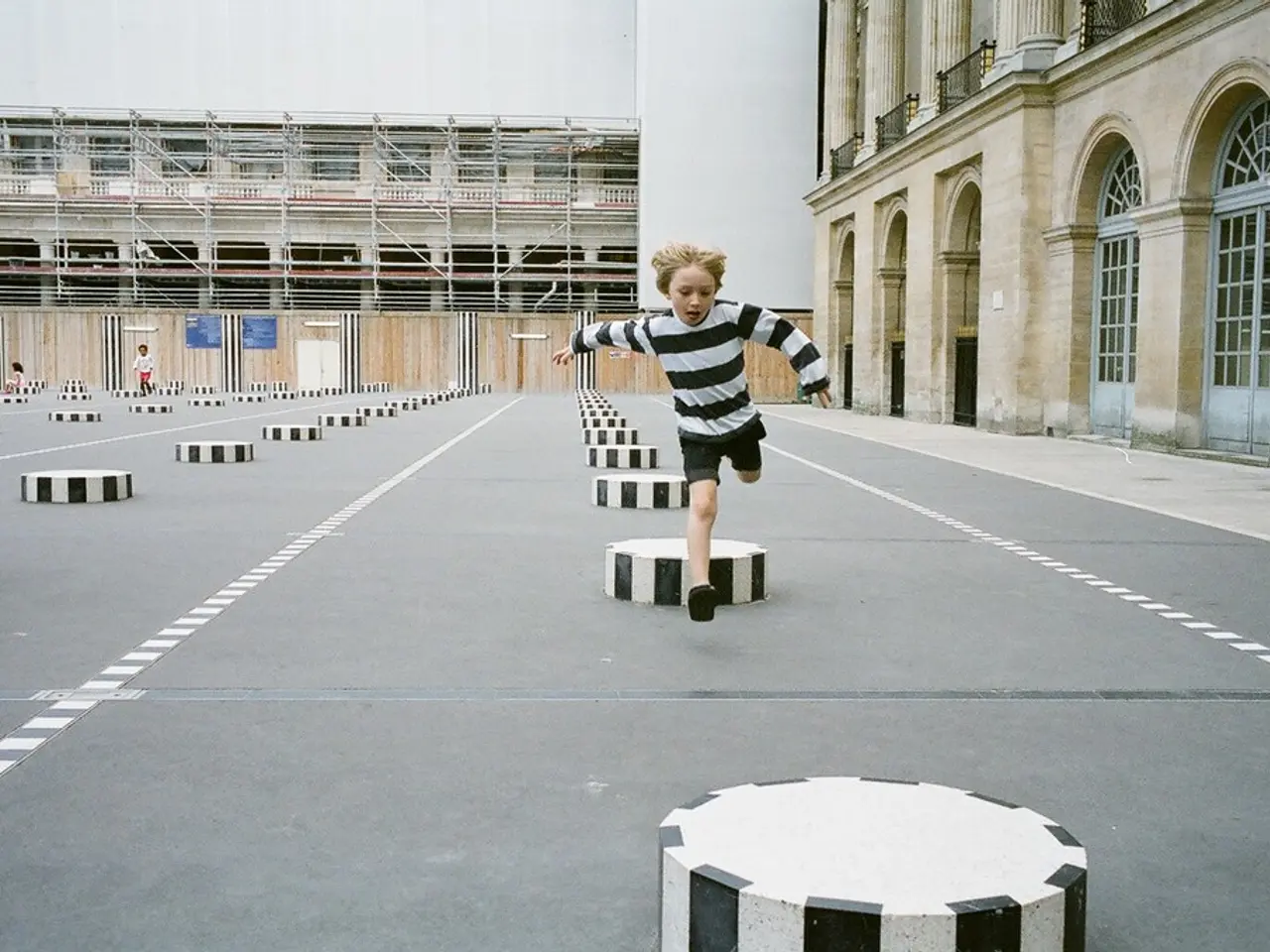"Boys' Education Institution"
School No. 106 in Astana, Kazakhstan, is making strides in preparing young children for the challenges of formal education with its innovative "Little School" program. This program aims to teach children the essentials of reading, writing, counting, and introducing them to school life in a fun, game-based environment.
The school, designed with comfort and quality learning in mind, is divided into three blocks, each with its own entrance for different levels. The building boasts a safe dining room with four entrances, ensuring a smooth flow of students during meal times. A separate office for trainers is also available, providing a dedicated space for professional development and planning.
Gulshim Elmambetova, a specialist in pre-school preparation at School No. 106, emphasizes the importance of the program. "The 'Little School' program is designed to help children adapt to school, learn to be attentive, communicate with teachers and classmates, and make new friends," she said.
The program focuses on developing key readiness skills. Children are expected to master recognizing and naming upper and lower case letters, understanding phonemic awareness, writing letters and their names, counting to at least 20, and beginning to grasp simple addition and subtraction concepts. Social skills such as sharing, cooperating with peers, and showing curiosity and eagerness to learn are also nurtured.
Technology tools and creative learning methods are integrated into the program to enhance engagement, creativity, and critical thinking. This approach ensures that students are well-prepared for the demands of formal first-grade learning and beyond.
Classes at School No. 106 are held every day, with three 20-minute lessons starting at 9 am and ending by 11 am. During lessons, educational videos and cartoons are shown to keep students engaged. Between lessons, children have breaks for rest, socialization, and play.
The school also provides equal conditions for inclusive children, with special classrooms available during school hours. Around 3,000 children are expected to start first grade in Astana this year, and School No. 106 is ready to welcome them with open arms.
Aisel Zhumaqulova, who provided the photo for School No. 106, captured the vibrant energy and excitement that fills the school's halls. The school's grandmothers, like one whose granddaughters attend the school, have nothing but praise for the program. They speak of the children's enjoyment of the lessons and the new friendships their children have made.
The "Little School" program at School No. 106 is a shining example of how quality education can be provided to young children, setting them up for success in their future academic endeavours.
[1] Readiness for Kindergarten: What Parents Need to Know. (2018). National Association for the Education of Young Children. [2] Early Learning and Child Care. (2020). Government of Canada. [3] Kindergarten Readiness: What Parents Need to Know. (2019). Understood.org. [4] The Role of Technology in Early Childhood Education. (2019). Education Week.
- To reinforce the educational advancements of School No. 106, they incorporate elements from diverse disciplines such as lifestyle, home-and-garden, education-and-self-development, and learning by leveraging the insights found in publications like "Readiness for Kindergarten: What Parents Need to Know" by the National Association for the Education of Young Children.
- Aiming to provide a well-rounded educational experience, School No. 106's "Little School" program promotes learning not only within the academic sphere, but also in areas related to home-and-garden, lifestyle, and self-development by integrating technology tools and creative learning methods, aligning with the principles discussed in The Role of Technology in Early Childhood Education by Education Week.




